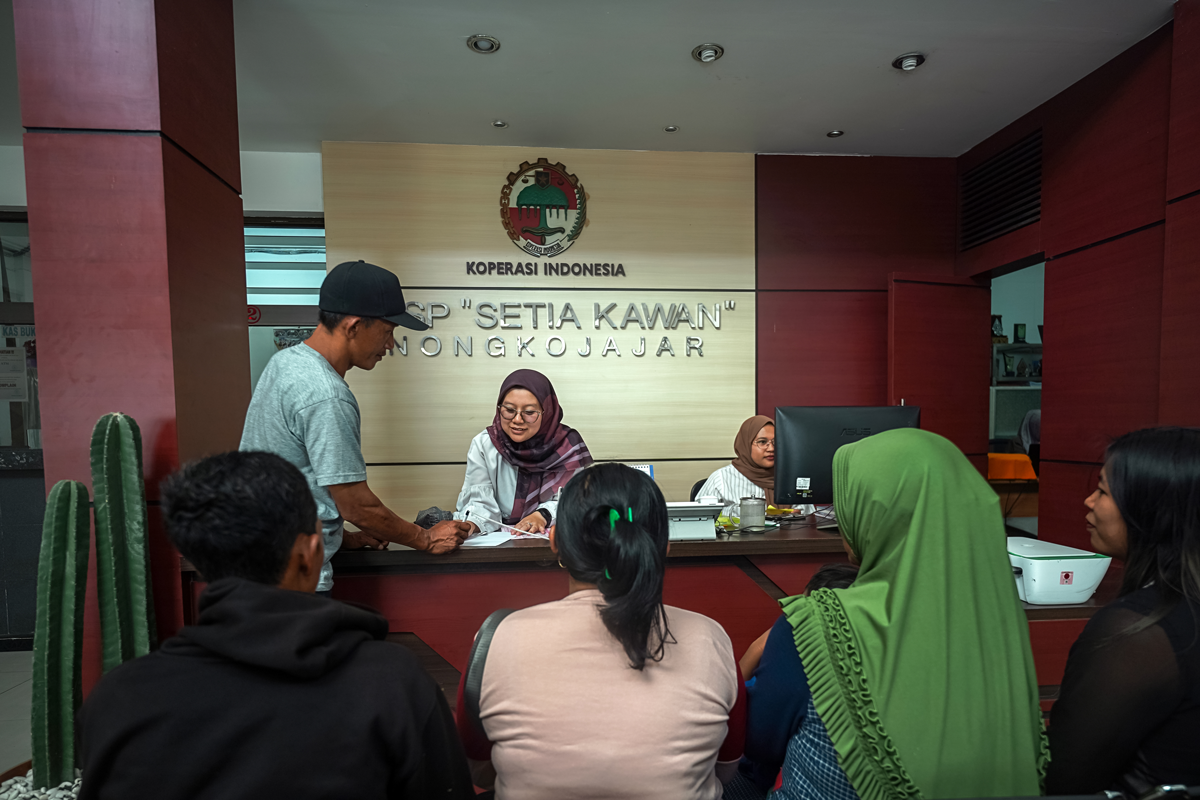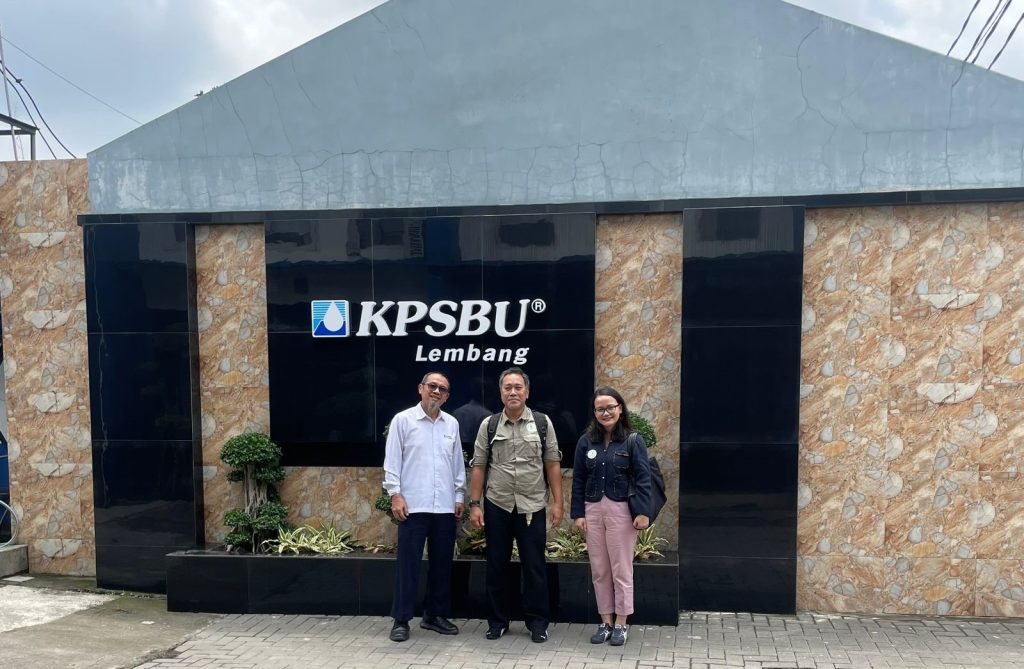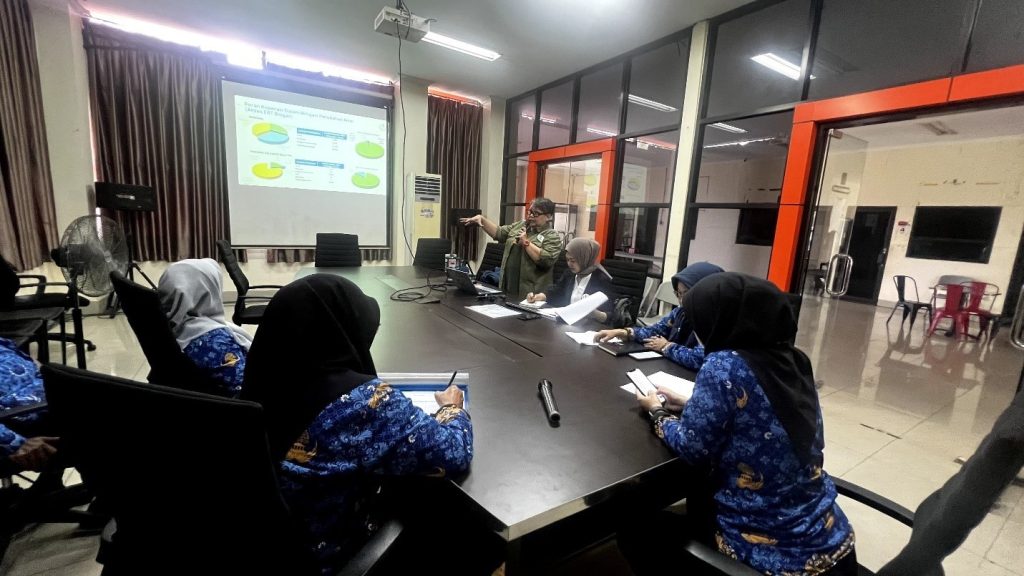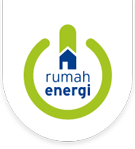Grounding Green Cooperatives, Mobilizing Grassroots Strength

The hydrometeorological disasters in several regions in Indonesia such as in Sukabumi some time ago are clear evidence of climate change. The extreme weather that hit caused hydrometeorological disasters such as floods and landslides. Climate change has become a serious problem that needs to be addressed together. The involvement of various parties is expected to have an impact on climate change mitigation and adaptation efforts.
Rumah Energi through the Green Cooperative movement seeks to encourage the involvement of cooperatives in mobilizing climate funding. In rural areas, most cooperative members work as farmers and ranchers, often directly affected by climate change. Cooperatives are considered to have strong capital and social capital to reach those affected by climate change. Therefore, since 2023 until now, Rumah Energi has continued to encourage cooperatives in the regions to take part in the Green Cooperative movement.
One of the efforts made to intensify Green Cooperatives is through meetings with cooperatives that have the potential or experience in implementing environmentally friendly businesses. Rumah Energi held a meeting with the North Bandung Cattle Breeders Cooperative (KPSBU) Lembang. The meeting was welcomed by the Secretary of KPSBU Lembang, drh. Ramdan Sobahi. According to Mr. Ramdan, currently, the policy needed by cooperatives is business and legal protection for cooperatives which is considered quite difficult to obtain, especially for small cooperatives. Several cooperatives have received loan assistance from the government, but this does not make small cooperatives sustainable.

Other things that still need to be improved are digital marketing knowledge for workers in cooperatives and financial literacy for farmers so that they can manage family finances which have an impact on welfare. The hope is that cooperatives can collect funds for better management from farmers. In addition, every year there is an addition of 600 dairy cows, in contrast to the land for livestock development which is decreasing due to the construction of other settlements or industries. Feed and green land are crucial but increasingly limited, it is hoped that under the administration of President Prabowo who makes food independence the focus and includes milk as one of the compositions of the nutritious food program, it can be an encouragement for farmers to continue their efforts.
On another occasion, Rumah Energi also held an audience with the South Sulawesi Provincial Cooperatives and SMEs Office. In addition to collecting survey data and discussions, the purpose of this meeting was also to see to what extent stakeholders, especially in the regions, understand environmental issues and climate change that are occurring in their areas. The meeting was welcomed by the Head of Empowerment of the South Sulawesi Provincial Cooperatives and SMEs Office, Mrs. Indriastuti, who explained that Green Cooperatives, or environmentally friendly cooperatives are still unfamiliar and new to them because currently they are still struggling with improving cooperative governance which is still the main focus of the cooperative office. The projection is that green cooperatives will be focused on production cooperatives such as livestock and agricultural cooperatives which are now also the focus of the government as one of the national food supplier actors. Although there are no national and regional government regulations regarding green cooperatives, good work in the regions can still be carried out and echoed, in addition to the limited budget and APBD and APBN to assist cooperatives as well as livestock and farmers.

Through this good meeting, Mrs. Indriastuti also invited Rumah Energi to attend the Regional Apparatus Organization (OPD) Communication Forum throughout South Sulawesi Province which will be held in 2025 for direct socialization regarding the Green Cooperative program to the ranks of OPD of South Sulawesi Province which will be attended by all Heads of Services. The hope is that the Green Cooperative program can reach around 4,000 cooperatives in the South Sulawesi region.
Meetings and audiences will continue to be carried out to encourage the consolidation process of the Green Cooperative movement. The hope is that more cooperatives or cooperative services will have an awareness and understanding of the importance of sustainability so that later they will support and even participate in implementing sustainable business practices. If green cooperatives can be implemented massively, it is not impossible that climate change mitigation and adaptation efforts can be driven from the grassroots community level.
Written by: Jenni Irene Connie
Edited by: Fauzan Ramadhan

